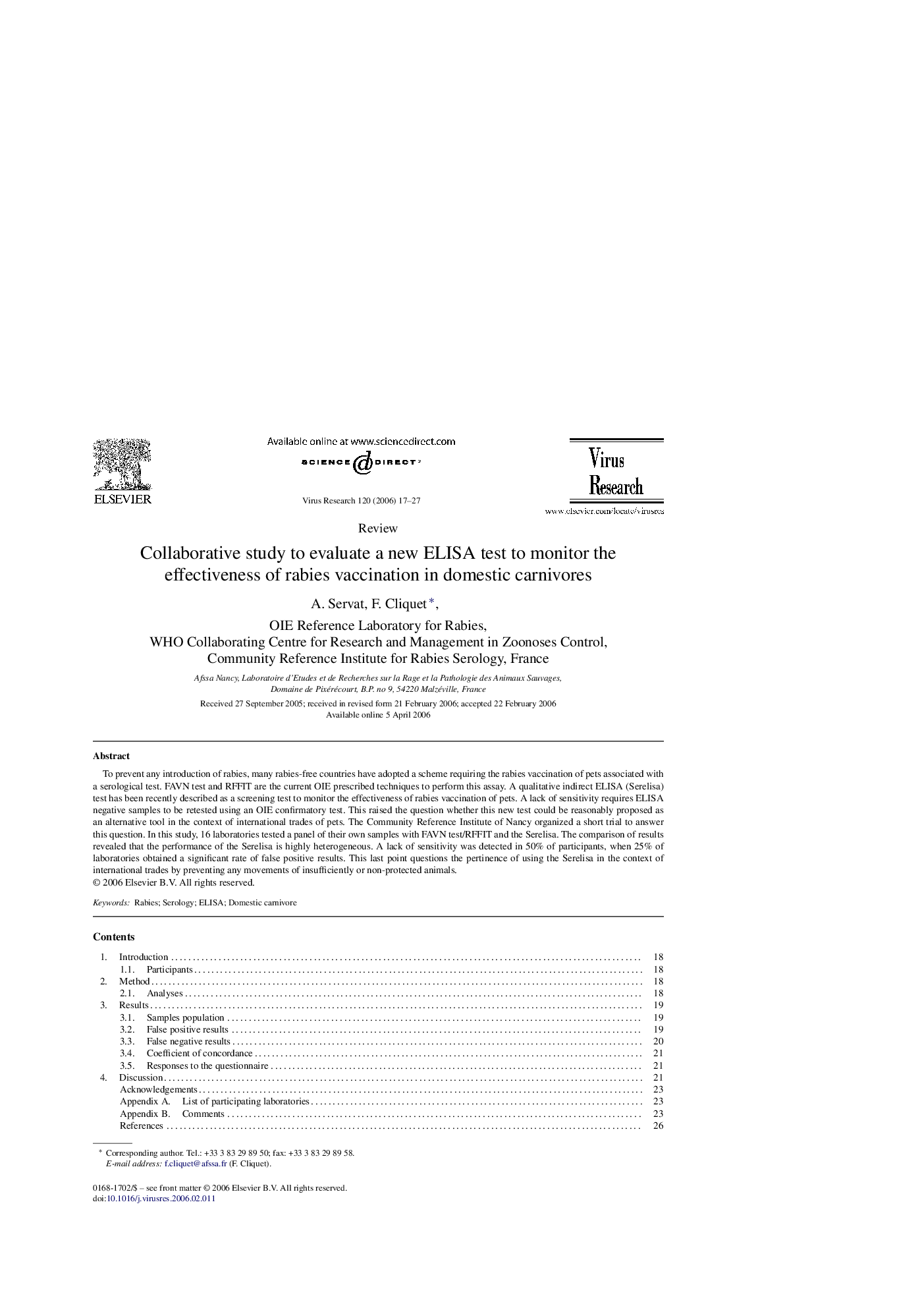| Article ID | Journal | Published Year | Pages | File Type |
|---|---|---|---|---|
| 3431209 | Virus Research | 2006 | 11 Pages |
To prevent any introduction of rabies, many rabies-free countries have adopted a scheme requiring the rabies vaccination of pets associated with a serological test. FAVN test and RFFIT are the current OIE prescribed techniques to perform this assay. A qualitative indirect ELISA (Serelisa) test has been recently described as a screening test to monitor the effectiveness of rabies vaccination of pets. A lack of sensitivity requires ELISA negative samples to be retested using an OIE confirmatory test. This raised the question whether this new test could be reasonably proposed as an alternative tool in the context of international trades of pets. The Community Reference Institute of Nancy organized a short trial to answer this question. In this study, 16 laboratories tested a panel of their own samples with FAVN test/RFFIT and the Serelisa. The comparison of results revealed that the performance of the Serelisa is highly heterogeneous. A lack of sensitivity was detected in 50% of participants, when 25% of laboratories obtained a significant rate of false positive results. This last point questions the pertinence of using the Serelisa in the context of international trades by preventing any movements of insufficiently or non-protected animals.
